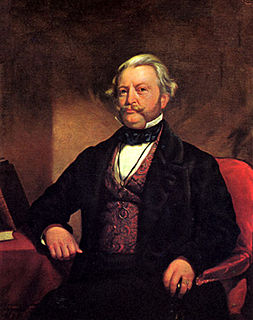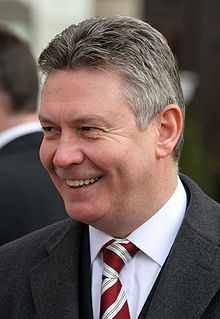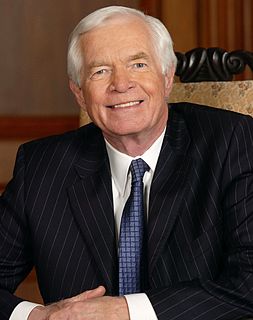A Quote by Helmut Schmidt
Ronad Reagan might go down to history as a man who in the end of this administration brought about the first nuclear arms reduction treaty, the first arms reduction treaty at all in the modern world, and this is quite something.
Related Quotes
When I was secretary of state, I had to be responsible for getting a nuclear arms reduction treaty with Russia through the Senate. We needed, I think, 13 Republican votes to get to 67. I started working in the summer making just endless phone calls, meetings, bringing experts to talk to Republicans, and then we finally got it done at the end of the year 2010. So I'm excited to roll up my sleeves and get into the business of solving problems and making progress together.
In fact, the Outer Space Treaty of 1967 bans militarization. Potential adversaries of the US, and even its allies, are so far behind that these countries are very interested in maintaining the treaty. Europe and the rest of the world want a strong reaffirmation of the Treaty and the US is unilaterally trying to derail it. Termination of the treaty would mean that the US could develop satellite weapons, put offensive weapons in space. It would probably mean using nuclear power in space. All of this leads to some very dangerous scenarios, including destruction of the species.
My activities, for which I gratefully accept this Award, are today what they have been for over thirty-five years and will be for the rest of my life: to counter governmental secrecy about the nuclear arms race that threatens the survival of life on earth; and to help build a world movement that will prevent a first use since Nagasaki of nuclear explosions, prevent or end interventions that could lead to such an event, and bring about a world free of nuclear weapons.
One of the most serious [challenges] is increased military spending and the cost of maintaining and developing nuclear arsenals. Enormous resources are being consumed for these purposes, when they could be spent on the development of peoples, especially those who are poorest. For this reason I firmly hope that, during the Nuclear Non-Proliferation Treaty Review Conference to be held this May in New York, concrete decisions will be made towards progressive disarmament, with a view to freeing our planet from nuclear arms
It seems to me to be a way to give the Clinton Administration an opportunity to sidestep the issue of whether to announce they're going to withdraw from the ABM treaty, or whether they're going to go ahead and proceed with construction and be hopeful the Russians are not going to accuse them of violating the treaty.
If protesting against having a nuclear bomb implanted in my brain is anti-Hindu and anti-national, then I secede. I hereby declare myself an independent, mobile republic. I am a citizen of the earth. I own no territory. I have no flag. My policies are simple. I'm willing to sign any nuclear non-proliferation treaty or nuclear test ban treaty that's going. Immigrants are welcome. You can help me design our flag.











































